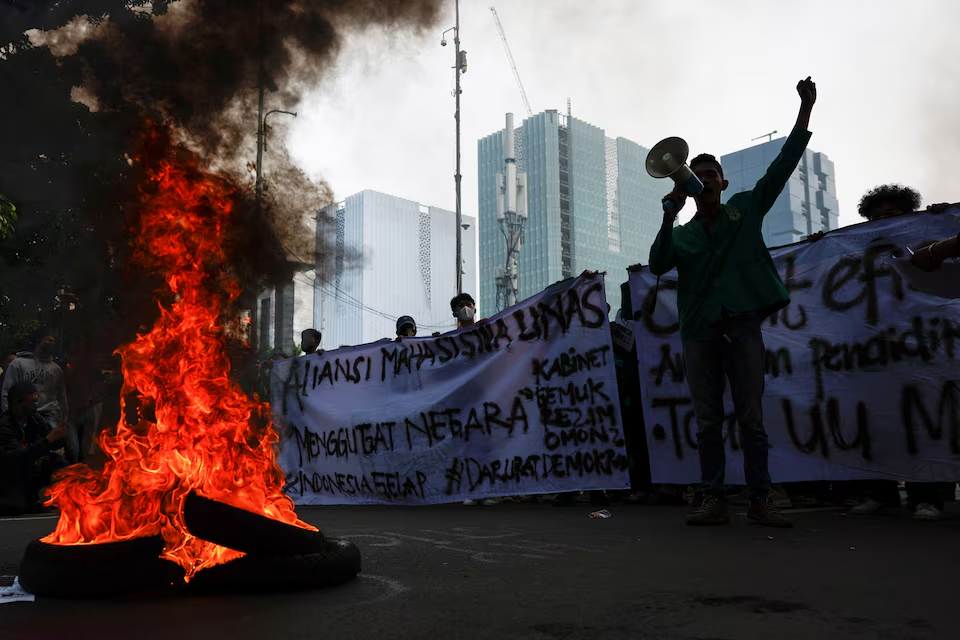Protest across Indonesia as student took over the streets in a series of dubbed ‘Dark Indonesia,’ voicing their concerns over recent budget cuts and various policies implemented by President Prabowo Subianto. Many students fear that these measures will jeopardize essential social support systems and threaten their future prospects.
In the vibrant city of Yogyakarta, approximately a thousand students clad in black rallied through a bustling thoroughfare, brandishing placards and chanting calls for change. This demonstration came just four months after Prabowo’s decisive victory in the presidential election, which has left many young Indonesians feeling uncertain about their future.
The protests were not limited to Yogyakarta. Similar demonstrations erupted in other urban centers, including the capital city of Jakarta and Medan on Sumatra Island. The ‘Dark Indonesia’ movement has gained significant traction on social media, capturing the collective anxiety regarding the proposed budget cuts. Alongside this, another trend emerging online, ‘Just Escape First,’ reveals a growing sentiment among young people seeking advice on how to emigrate for work and better opportunities abroad.
Herianto, a student leader from Jakarta, articulated the frustrations of his peers regarding the reductions in the education sector. President Prabowo has initiated a cost-cutting strategy aimed at reallocating approximately $19 billion to fund various policies, including a controversial school lunch program. “Indonesia is dark because there are many policies that aren’t clear to our society,” Herianto, who, like many Indonesians, is known by a single name, stated. “The cuts are designed to plug a hole in the free meal program expenses. Education is one of the areas that could be severely impacted. Students are rightfully angry.”
During the protest in Jakarta, state secretariat minister Prasetyo Hadi addressed the crowd, acknowledging receipt of the students’ demands and assuring them that the government would carefully consider their concerns. However, skepticism remains among protesters, especially given that Prabowo’s administration has claimed that funding adjustments would not adversely affect the education sector or the welfare of teachers. With various ministries implementing significant budget reductions, many worry that essential government services could be disrupted, leading to a decline in the quality of education and support available to students.

As the protests unfolded, students expressed a profound sense of urgency and frustration, emphasizing the need for transparency and accountability in government policies. The demonstrations reflect a broader discontent among Indonesia’s youth, who are increasingly aware of the implications of policy decisions on their lives and futures.
The ‘Dark Indonesia’ protests are not merely a reaction to immediate budget cuts; they symbolize a growing movement among young Indonesians who are demanding a seat at the table in discussions that will shape their nation’s future. With the ongoing discussions and negotiations regarding the budget, it remains to be seen how the government will respond to the voices of its youth.
As the day drew to a close, the message from the students was clear: they are not willing to stand by silently while their futures are put at risk. The growing momentum of the ‘Dark Indonesia’ movement indicates that young Indonesians are prepared to fight for the resources and support they need to thrive in an uncertain world. This pivotal moment may well mark the beginning of a more active and engaged generation, determined to influence the direction of their country.



